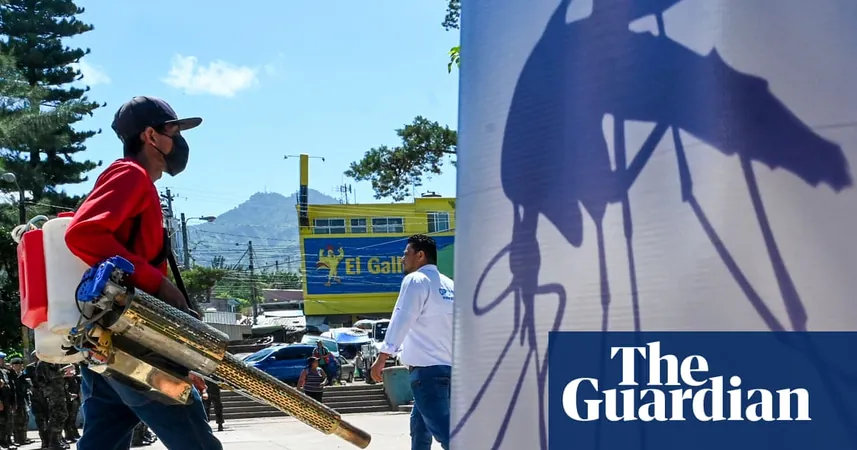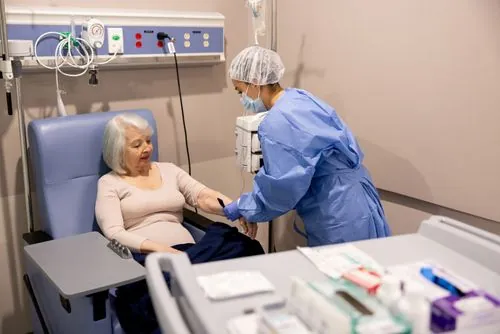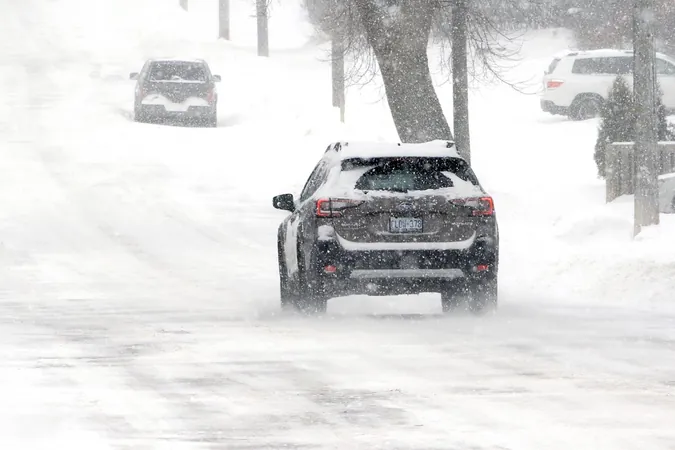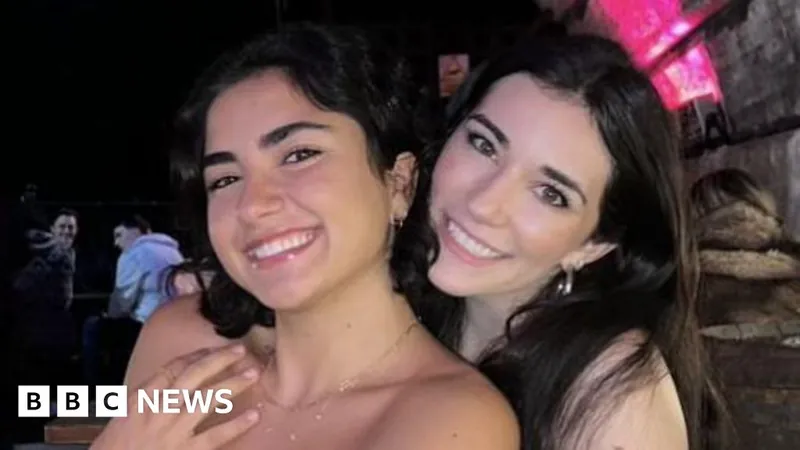
Dengue Fever Deaths Skyrocket in the Americas: Is Climate Change to Blame?
2024-12-11
Author: Emma
Introduction
As 2024 progresses, the Caribbean and the Americas are grappling with an alarming surge in deaths attributed to dengue fever, with health officials reporting over 7,700 fatalities this year—an astonishing increase of more than 200% from the 2,467 deaths recorded in 2023. The rise in temperatures linked to the climate crisis has provided the perfect breeding ground for the mosquitoes that transmit this potentially lethal virus.
Current Statistics and Trends
This year has seen a staggering 12.6 million suspected cases of dengue reported in the region, nearly tripling last year's figures. The Pan American Health Organization (PAHO) has confirmed that the current outbreak represents the highest number of cases reported since records began in 1980. PAHO Director Jarbas Barbosa emphasized that 'this is linked directly to climatic events,' pointing to the interplay of warmer temperatures, droughts, and flooding as key factors in the outbreak.
Contributing Factors
Population growth, unplanned urbanization, and inadequate sanitation infrastructure are also compounding the crisis, leading to conditions that favor mosquito proliferation. The ramifications of dengue fever are no longer confined to tropical locales; its reach has extended into areas previously free of the virus.
Countries Affected and Case Distribution
Brazil is the epicenter of this alarming outbreak, with more than 10 million cases reported. Other countries are not far behind: Argentina has reported over 580,000 cases, and Mexico is facing more than half a million. In the Caribbean, Guyana is currently leading with over 41,000 cases, followed by French Guiana, the Dominican Republic, and Martinique.
Transmission in the United States
In the United States, local transmissions have been confirmed in states such as California, Florida, and Texas, increasing fears about the spread of the virus. Health experts note that there are four distinct serotypes of the dengue virus—denominated as 1, 2, 3, and 4—each capable of causing illness without providing immunity against the others, making repeated infections particularly dangerous.
Resurgence of Dengue Serotypes
Dr. Thais dos Santos of PAHO reported that dengue serotype 3 has resurfaced, becoming the predominant strain in Mexico, Central America, and parts of the Caribbean, an unsettling development after a decade. While many individuals infected with dengue remain asymptomatic, those who do experience symptoms may suffer from severe headaches, high fever, and flu-like symptoms. In dire cases, the infection can lead to severe bleeding, shock, and even death.
Crisis in Puerto Rico
The situation in Puerto Rico has reached a critical point, with officials declaring an epidemic by late March. The territory has recorded over 4,900 cases and at least nine deaths, including heartbreaking cases involving a 17-year-old girl and a 31-year-old woman. This marks a nearly fourfold increase in cases compared to the previous year.
Personal Accounts and Impact on Youth
Lydia Platón, a 55-year-old professor at the University of Puerto Rico, shared her harrowing experience after contracting dengue last October. She described the relentless fever and debilitating chills, lamenting, 'I don’t feel that my energy has returned yet.' The impact of this health crisis is being felt heavily among the younger population, with over one-third of reported cases in Costa Rica, Mexico, and Paraguay involving children under 15. Moreover, Guatemala has recorded a distressing number of child fatalities.
Vaccination Efforts and Challenges
Innovative vaccines against dengue have been rolled out in countries like Peru, Brazil, and Argentina, and Honduras is expected to receive its doses next year. However, these vaccines are primarily targeted toward children and are most effective for those who have already had a prior dengue infection. Unfortunately, supply limitations mean that these vaccines are unlikely to significantly curb the outbreak, highlighting the importance of preventive measures.
Call to Action
Dr. Dos Santos delivered a poignant reminder: 'If there’s no mosquito, there’s no dengue.' As the crisis deepens, it is vital for residents to rally together and take actionable steps in combatting mosquito breeding to protect their communities. Will urgent health strategies and community involvement be enough to turn the tide before the situation worsens? The clock is ticking.









 Brasil (PT)
Brasil (PT)
 Canada (EN)
Canada (EN)
 Chile (ES)
Chile (ES)
 España (ES)
España (ES)
 France (FR)
France (FR)
 Hong Kong (EN)
Hong Kong (EN)
 Italia (IT)
Italia (IT)
 日本 (JA)
日本 (JA)
 Magyarország (HU)
Magyarország (HU)
 Norge (NO)
Norge (NO)
 Polska (PL)
Polska (PL)
 Schweiz (DE)
Schweiz (DE)
 Singapore (EN)
Singapore (EN)
 Sverige (SV)
Sverige (SV)
 Suomi (FI)
Suomi (FI)
 Türkiye (TR)
Türkiye (TR)